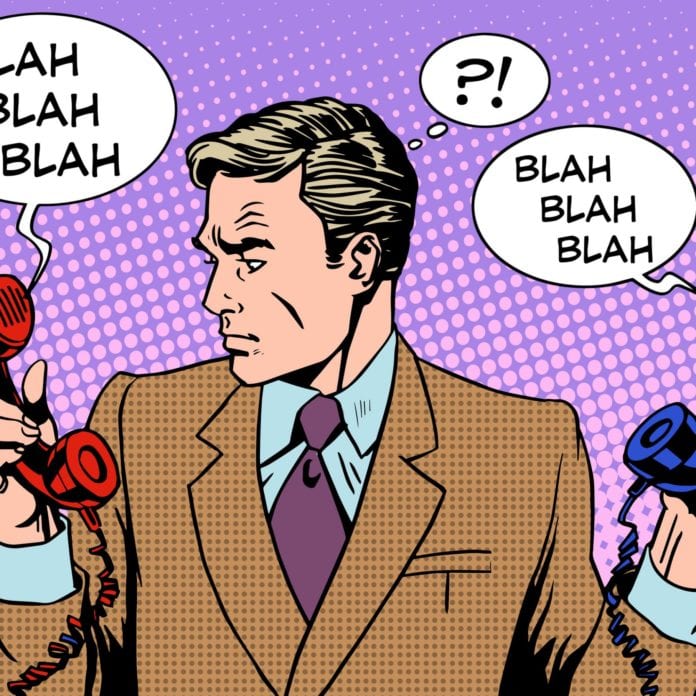Yesterday was a major deadline for implementation of anti-robocalling tools. As part of its ongoing efforts to combat scam and fraudulent robocalls, the Federal Communications Commission had established June 30 as the deadline for network operators to implement the STIR/SHAKEN framework to authenticate that voice calls are actually coming from the caller ID associated with the call. Incoming calls that are likely to be spam can be labeled for consumers, so that they can choose whether or not to answer, or suspect calls can be blocked altogether.
The FCC adopted new rules on STIR/SHAKEN implementation for all originating and terminating voice service providers in the spring of 2020, which were in line with direction from Congress’ anti-robocall TRACED Act. President Donald Trump signed the Pallone-Thune TRACED Act on December 30, 2019. That legislation included a provision which directed the FCC to require voice service providers to implement STIR/SHAKEN (Secure Telephone Identity Revisited/Signature-based Handling of Asserted information using toKENs) within 18 months of the TRACED Act being adopted. The FCC had been encouraging operators to adopt the framework prior to that, forming an industry robocall task force back in 2017; an ATIS testbed for STIR/SHAKEN supported early testing and implementation efforts in the years since.
Last year, the FCC had estimated that the financial benefit of eliminating the wasted time and nuisance caused by illegal scam robocalls would exceed $3 billion annually, out of an estimated $10 billion that fraudulent robocalls cost Americans annually.
In terms of specific updates from the three national carriers:
-T-Mobile US said that all calls originating on its network are 100% STIR/SHAKEN compliant and that as of March of this year, it was the first U.S. wireless provider to work with all other major networks to implement STIR/SHAKEN on a cross-carrier basis. T-Mo says that it is working with a list of providers that collectively, represent 98% of U.S. wireless customers.
-Verizon confirmed that it has met the FCC’s requirements, and in fact completed its wireless network upgrade to STIR/SHAKEN in March of 2019, more than two years ahead of the deadline. Verizon said that it is now exchanging STIR/SHAKEN-enabled calls with wireless carriers that collectively represent around 80% of the U.S. wireless industry, and that more than 135 million calls a day are currently being exchanged between Verizon and the participating carriers, with that number “growing quickly.”
-AT&T says it is blocking more than a billion robocalls each month. In filings with the FCC, the carrier detailed its various anti-robocall efforts, including implementing its AT&T Call Protect service on an opt-out basis that was completed in the first quarter of 2020, with fewer than 1% of its subscribers having opted out. The carrier confirmed to The Verge that it met the FCC’s mandate. AT&T had at one point requested a one-year extension of the STIR/SHAKEN implementation date because of platform support issues that impacted a limited amount of its Voice over LTE traffic, but it withdrew the extension request in March.
“At last, STIR/SHAKEN standards are a widely used reality in American phone networks,”said Acting FCC Chairwoman Jessica Rosenworcel. “While there is no silver bullet in the endless fight against scammers, STIR/SHAKEN will turbo-charge many of the tools we use in our fight against robocalls: From consumer apps and network-level blocking, to enforcement investigations and shutting down the gateways used by international robocall campaigns. This is a good day for American consumers who – like all of us – are sick and tired of illegal spoofed robocalls.”
The June 30 deadline doesn’t mean that anti-robocall efforts are complete — there is still work to be done by smaller carriers and on an international basis.
For small and rural voice service providers with fewer than 100,000 subscriber lines, the FCC has granted a two-year extension for STIR/SHAKEN, as long as they implement some type of a robocall mitigation effort. However, the FCC noted yesterday that it is “formally considering shortening that extension for a subset of these providers in light of new evidence indicating that they are originating a high and increasing quantity of illegal robocalls.” That’s a testimony to the effectiveness of STIR/SHAKEN — as larger carriers implement it, scammers are shifting to send their unwanted calls via voice providers who haven’t yet put it in place.
Meanwhile, every voice carrier had a June 30 deadline to provide information to the Robocall Mitigation Database of the FCC’s Wireline Bureau, including details about the extent to which they are signing traffic with STIR/SHAKEN or otherwise preventing robocalls, such as with an analytics-based approach. As of September 28 of this year, intermediate providers and terminating voice traffic providers will not be required to accept traffic from voice providers who aren’t in that database. The FCC said that more than 1,500 voice service providers have filed information to the database, and that more than 200 voice providers have certified that they have fully implemented STIR/SHAKEN and “hundreds more” have certified partial implementation. However, AT&T said in a recent FCC filing that it is having trouble getting international voice partners to comply; despite “extraordinary efforts to educate its foreign service provider partners,” the carrier said, as of June 23 only about 20% of those which use telephone numbers that pertain to the U.S. to send voice traffic to AT&T subscribers had registered with the mitigation database. “Many are still struggling to understand the requirements and others have run into technical problems registering,” AT&T said.
ATIS said last week week that its testbed is continuing to help operators make sure they are meeting FCC requirements and that it will expand its features and functionality in the second half of this year to support both emerging ATIS standards and global interoperability testing for international anti-robocall frameworks. ATIS added recently that its testbed, hosted by Neustar, has had 66 participants (62 carriers and four vendors) from seven countries, with participants representing 70% of the active phone numbers in the U.S.

